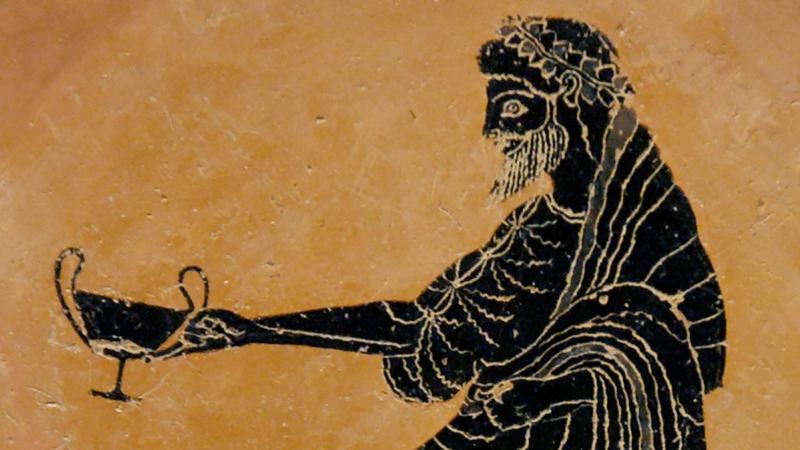Every Christian should be reading First Peter right now. Of course, all of Scripture is always relevant is profitable. But Peter’s words are powerfully applicable to us today. Why is that?
Peter writes to instruct God-fearing saints in how they should conduct themselves in a godless society, as citizens living in a “pre-Christian” culture. That is, in just a century or two the influence of Christianity will sweep over the known world. But at the time of Peter’s writing, Christianity was still the minority report among the nations. Christians were strange and bizarre—their behavior even threatened many cultural elites. Since Christian ethics were not the norm, Peter’s exhortations to stick to these ethics was particularly important. Interestingly, the pendulum of history has swung. Today, we are in a situation eerily similar to that of Peter’s initial audience: not in a pre-Christian society, but rather a post-Christian society. A pre-Christian world and a post-Christian world look a lot alike. So, let’s pay attention, taking for our consideration now the instruction in 2:11-12,
“Beloved, I urge you as sojourners and exiles to abstain from the passions of the flesh, which wage war against your soul. Keep your conduct among the Gentiles honorable, so that when they speak against you as evildoers, they may see your good deeds and glorify God on the day of visitation.”
Sojourners in this World
Peter says the believer is one who is a sojourner in this world. This is the predominant reason that we are to “abstain from the passions of the flesh.” Sin belongs to this world, but we don’t. A temporary resident is not likely to adopts the customs of the land that is not their homeland, so too we must not join in the customs of sin. This is Peter’s great pastoral concern: he urges his readers. He doesn’t dictate or demand. But he encourages them.
Being a foreigner isn’t necessarily fun. It can be lonely. It can be isolating and depressing. Faced with that reality, the sin which offers even the briefest and most fleeting comfort and validation is all the more alluring. Notice how Peter couches this exhortation with two subtle encouragements. The first is by reminding his readers, and us, that we are “sojourners and exiles.” That’s a particular phrase that he plucked right out of Genesis 23:4, when Abraham asks the Hittites if he can buy some land to bury his wife, Sarah. “I am a sojourner and foreigner among you; give me property among you for a burying place, that I may bury my dead out of my sight.” The encouragement is this: you and I, if we are Christians, come from the line of Father Abraham. This feeling of estrangement is not new to the people of God. Even great Abraham knew what it was like to be an alien. God preserved him; He will preserve us, too.
There’s another encouragement for sojourners and exiles, and it’s in that opening term of address: “beloved.” Being ostracized by the world will not fill you with a sense of love and acceptance. But we are loved—not by the world, but by the Creator of the world. We are beloved by God because we are in the Beloved of God, Jesus Christ. The very affection that the Father lavishes upon the Son He lavishes upon us. These Christians in Asia Minor, no matter how rejected and besmirched and vilified they felt, were nevertheless “beloved.” And because they are beloved by God, they are urged to live as ones who belong to God, and flee from sin.
We must do the same. We don’t belong to this world. We belong to God. A person becoming a citizen of the United States must take an intense oath to do so: “I hereby declare, on oath, that I absolutely and entirely renounce and abjure all allegiance and fidelity to any foreign prince, potentate, state, or sovereignty, of whom or which I have heretofore been a subject or citizen.” A Christian’s vow to God is no less severe. We must entirely renounce and abjure all allegiance and fidelity to the domain of darkness. We are not citizens here, we are sojourners.
Soldiers against Sin
And this leads to the second point: we are also soldiers against sin. Peter writes, “abstain from the passions of the flesh, which wage war against your soul.” The verb here translated “wage war” literally means to serve as a soldier. If sin is marching against us and ready to do battle against our very soul, then we must soldier up ourselves! Paul writes in Ephesians 6:
For we do not wrestle against flesh and blood, but against the rulers, against the authorities, against the cosmic powers over this present darkness, against the spiritual forces of evil in the heavenly places. Therefore, take up the whole armor of God, that you may be able to withstand in the evil day, and having done all, to stand firm.
Ephesians 6:12–13
Do we realize that we are at war? Often, because we can’t see sin assaulting our soul, we assume that it is not. Paul writes elsewhere, “For though we walk in the flesh, we are not waging war according to the flesh” (2 Cor. 10:3). The fight is real. The threat is serious. Don’t be caught off guard.
So don’t manage your sin; mortify it. Kill it. Fight it to the death. As a soldier of the cross, abstain from the “passions of the flesh.” In 1:14 Peter tells us not to be conformed to these passions (“do not be conformed to the passions of your former ignorance”), but here he ups the ante: don’t even converse with these passions. And although this all comes in the context of Peter decrying the pagan world that surrounds the believer, in the final analysis the issue of sin is an internal one, not an external one. We cannot blame culture for sin, because it arises out of the passions of our own flesh. We cannot coddle these sins; we must kill them. Take the advice of John Owen: “Be killing sin or it will be killing you.” Peter awakens us to the fact that not only are we in a strange land, it’s also a battlefield. So be ready to fight.
Servants Promoting God’s Glory
Fighting vice must always mean embracing virtue. We can’t kick a bad habit unless we replace it with a good habit. So that’s why Peter says we are not merely to abstain from the passions of the flesh, but we are also to do that which is “honorable” (v. 12). The word could actually be translated as “beautiful.” There should be an attractiveness of a believer’s lifestyle. It’s an allure that ought to counter and conquer the allure of sin in the world. We want those who do not know Christ to see Him in us and rather have what we have than have the sin that is calling their name. The world is all about making their lifestyle seem attractive. Are Christians?
Peter says that we are to live beautiful lives, not until the moment that they speak evil against us, but even as they speak evil against us. This is the time to live out Peter’s exhortation, because right now the sum of the Christian faith to the outside world is that we are evil. For example, a recent headline in the Seattle Times reads, “Seattle Police Chief Rescinds Dinner Invitation Sent by Evangelical Group Known for Anti-LGBTQ Stance.” Interesting, what is the group that is “known” for their anti-LGBTQ stance? What is this radicalized hate group that is known by this one thing? You read on in the article to discover who the journalist is referring to: The Billy Graham Evangelistic Association. That’s right. Billy Graham who had the ear of half a dozen presidents, met the queen, was on the Tonight Show with Johnny Carson—clearly welcomed and celebrated by the culture during his day—but now only a few decades later the association he founded is known by one thing: their anti-LGBTQ stance. That’s who Christians are to a world lost in the passions of the flesh.
But this is when what Peter says really counts. It’s when they revile us that our response matters the most. To see a humble and dignified and loving response to slander is a most powerful witness, and then “they may see your good deeds and glorify God on the day of visitation.” God can use us to those ends! In fact, this very thing happened at the cross. The cross is where Jesus was treated as an evildoer, the worst of the worst, and lowest of the low. And yet He opened not his mouth in protest or complaint. And what happens in response to this display? “When the centurion and those who were with him, keeping watch over Jesus, saw the earthquake and what took place, they were filled with awe and said, ‘Truly this was the Son of God!’” (Matthew 27:54).
What a beautiful thing the cross is. We believers are those who see the honor, the goodness, the beauty of Christ on the cross, and our heart has been changed. With His Spirit in us, our calling and our confidence is this: God can beautify us, even and especially in such an age as this, to draw others to Himself. May He receive the glory!
Jonathan Landry Cruse is the pastor of Community Presbyterian Church in Kalamazoo, Michigan, and an of The Christians True Identity and What Happens When We Worship. He is also a hymn writer, whose works can be found at www.HymnsOfDevotion.com.




